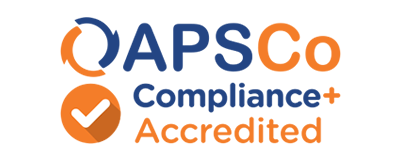Blog
Are you a supply teacher or teaching assistant looking for some help and advice? If so, you are in the right place. Our blogs offer tips and tricks on everything from classroom management to interview tips and support, along with day in the life case studies from real supply teachers, ECTs and cover supervisors. They also give you an insight into what working for Smile is like, the ways which we support local communities and charities and the training and events that we offer.
For more good stuff like this, follow us on social media - you can find us on Facebook, Instagram, Twitter and LinkedIn. Or pick up the phone and give us a call.
It goes without saying that Special Education Needs (SEN) Teaching Assistants (TA) play an incredibly valuable role in the education of children and young people in the UK.
SEN Teaching Assistants work to support students with a wide range of additional needs in order for them to access education.
If you’re interested in becoming a SEN Teaching Assistant, we’ve written out the basics of what you’ll need to get started.
What is a SEN Teaching Assistant?
A Special Educational Needs Teaching Assistant, also known as a SEN TA or Learning Support Assistant (LSA), is a member of school staff who works alongside teachers to support students with special educational needs or disabilities. They play a crucial role in helping students access the curriculum and thrive at school.
Key Responsibilities
The role of a SEN Teaching Assistant is diverse and can vary depending on the specific needs of the students they support. Some key responsibilities include:
- One-to-One Support: Working closely with individual students to help them understand and complete tasks.
- Small Group Work: Supporting small groups of students with similar needs.
- Curriculum Adaptation: Helping to modify learning materials to suit the needs of SEN students.
- Behaviour Management: Assisting with implementing behaviour management strategies.
- Communication Support: Using various communication methods, such as sign language or visual aids, to help students understand and express themselves.
- Personal Care: Assisting with personal care needs when required.
- Record Keeping: Maintaining records of student progress and communicating with teachers and parents.
- Emotional Support: Providing emotional and social support to help students build confidence and self-esteem.
Types of SEN Support
SEN Teaching Assistants may work with students who have a range of needs, including:
- Mild to moderate learning difficulties (MLD)
- Specific learning difficulties such as dyslexia (SPLD)
- Physical disabilities (PD)
- Hearing or visual impairment (HI, VI)
- Social, emotional or mental health issues (SEMH)
- Autism Spectrum Disorders (ASD)
- Speech, language and communication needs (SLCN)
Skills and Qualities
Not everyone can be a SEN Teaching Assistant. It’s important that anyone choosing this role possesses the following skills and qualities:
- Patience and empathy
- Excellent communication skills
- Ability to build positive relationships with children and adults
- Flexibility and adaptability
- Good organisational skills
- Creativity in adapting learning materials
- Basic IT skills
- Understanding of child development and learning processes
- Ability to work as part of a team
Qualifications and Training
While specific qualifications can vary depending on the school or local authority, some common requirements include:
- GCSEs in English and Maths (grades A*-C or 9-4)
- Level 2 or 3 Certificate in Supporting Teaching and Learning in Schools
- Specific SEN qualifications, such as the Level 3 Award in Supporting Children and Young People with Autism
- Additional training in areas such as safeguarding, first aid, and specific intervention techniques (e.g., Makaton, PECS) are often desirable, but may not be essential to every role.
Career Progression
The role of a SEN Teaching Assistant offers various opportunities for career advancement:
- Higher Level Teaching Assistant (HLTA): Taking on more responsibility in planning and delivering lessons.
- Specialised SEN Roles: Focusing on specific areas such as autism support or speech and language therapy.
- Teacher Training: Using experience as a stepping stone to become a qualified teacher, possibly specialising in SEN.
- SEN Coordinator (SENCO): With further qualifications, progressing to a leadership role in SEN provision.
The Impact of SEN Teaching Assistants
SEN Teaching Assistants make a significant difference in the lives of the students they support:
- Improved Access to Education: By adapting materials and providing individualised support, they help SEN students access the curriculum more effectively.
- Enhanced Inclusion: Their support allows many SEN students to be successfully included in mainstream classrooms.
- Boosted Confidence: The one-to-one attention and encouragement they provide can significantly boost students' self-esteem and confidence.
- Skill Development: They help students develop crucial life skills, including communication, social interaction, and independence.
- Reduced Pressure on Teachers: By providing targeted support, they allow teachers to focus on the needs of the whole class.
Challenges and Rewards
While the role can be challenging, requiring patience, adaptability, and emotional resilience, many SEN Teaching Assistants find their work incredibly rewarding. The opportunity to make a real difference in a child's life and to see students overcome obstacles and achieve their potential is often considered the best part of this role.
Next steps
Are you considering a career as a SEN Teaching Assistant? This is a crucial role that supports so many children and young people in achieving their full potential. If you’re dedicated to helping students build their confidence and access the curriculum, we’d like to hear from you.
Learn more about our current SEN school roles or get in touch with a recruitment consultant by calling 0121 392 6570. You can also talk to us on our website’s live chat.
Add a comment:












